Confront the challenge together, as a team. Although the final decision isn’t up to you, your input is still a critical ingredient in the process. Focus and mutual understanding are key in the moment. Several possibilities exist as your discussion begins, but options are weighed together and narrowed down to three, then two, then one. It's a ritual, performed again and again: caddie advising golfer, bookseller handselling to reader.
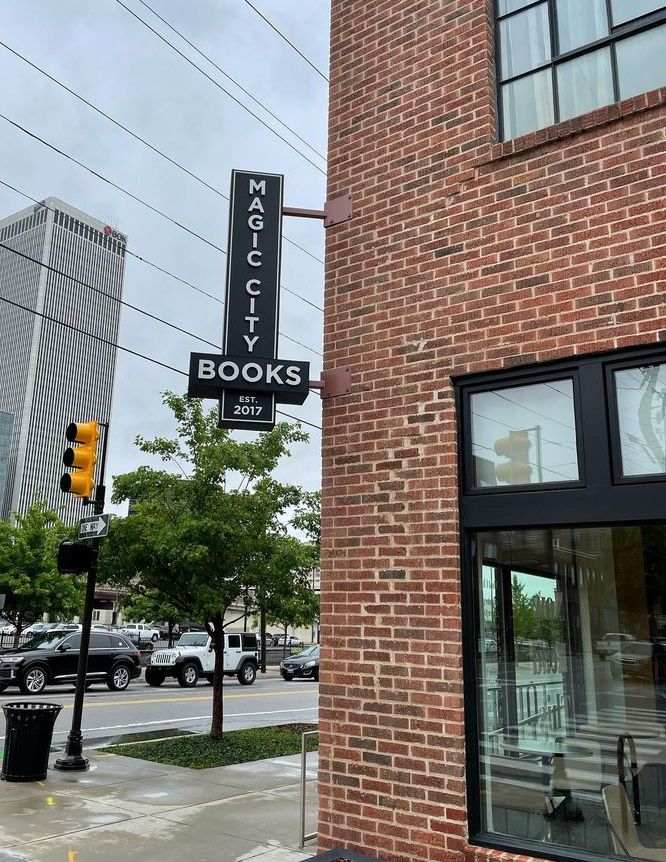 As you may have guessed, I've been thinking about books and golf, prompted unexpectedly by a May 2 Facebook post from Magic City Books in Tulsa, Okla., where this year's PGA Championship is currently underway at Southern Hills Country Club.
As you may have guessed, I've been thinking about books and golf, prompted unexpectedly by a May 2 Facebook post from Magic City Books in Tulsa, Okla., where this year's PGA Championship is currently underway at Southern Hills Country Club.
"We are idea people over here," Magic City Books posted, adding: "During the upcoming PGA Championship, we're considering starting the PAGE Championship. While other people watch golf, you get through as many books as possible. Still working out the details."
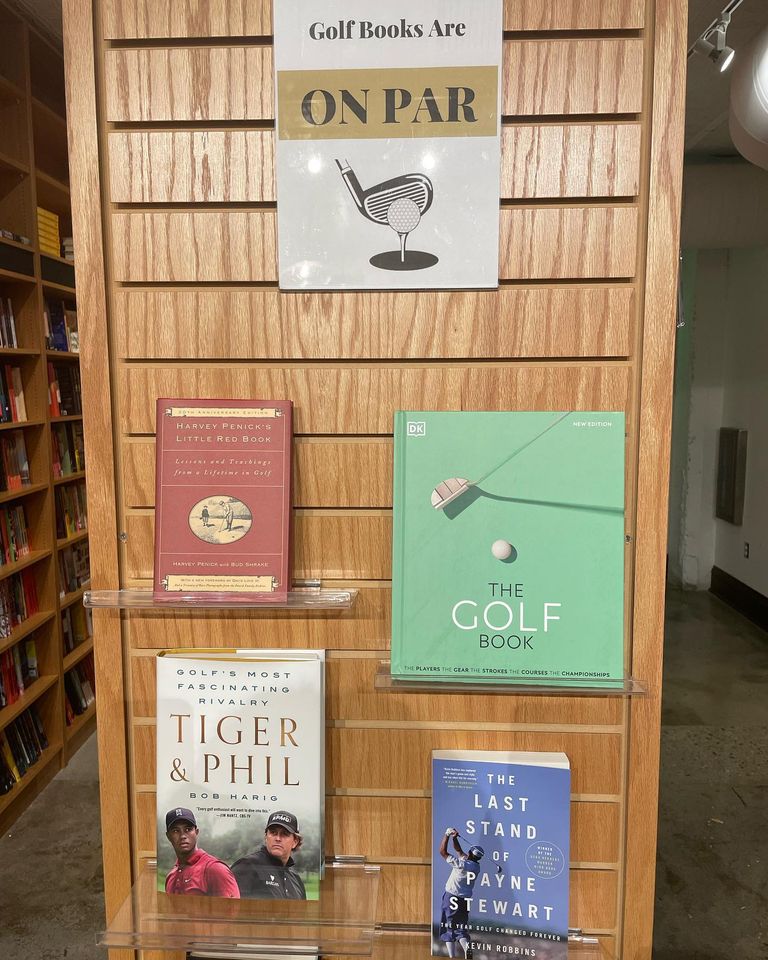 I like it. As the tournament approached, Magic City Books created a golf-themed endcap display and on Wednesday night, the store sold books during an in-person event at Lafortune Park Golf Course featuring Alan Shipnuck and his new title, Phil: The Rip-Roaring (and Unauthorized!) Biography of Golf's Most Colorful Superstar. Earlier, Magic City Books had also duly noted the troubles Phil Mickelson has gotten himself into this year (widely chronicled, just Google his name) .
I like it. As the tournament approached, Magic City Books created a golf-themed endcap display and on Wednesday night, the store sold books during an in-person event at Lafortune Park Golf Course featuring Alan Shipnuck and his new title, Phil: The Rip-Roaring (and Unauthorized!) Biography of Golf's Most Colorful Superstar. Earlier, Magic City Books had also duly noted the troubles Phil Mickelson has gotten himself into this year (widely chronicled, just Google his name) .
Despite being the defending PGA champion, Phil is not in town. But Magic City Books is on its game, and inspired me to collect a few moments from my past where reading, bookselling and golf happened to cross paths:
Caddying was my first "real job." For two perfect summers beginning when I was 14, I "looped" at a failing resort course in Vermont. Being a caddie might seem as easy as reading the number on a golf club and handing it to your player on request, but complexity lurked everywhere. By the second summer, I was playing the game and had evolved into a pretty good caddie. Relying on observation, experience and instinct, I could, for example, caution my golfer that the rustling tops of those trees walling in the second green were no wind gauge, just a siren song masking dead air below. Seeing was often not believing. And I learned a lot about reading people.
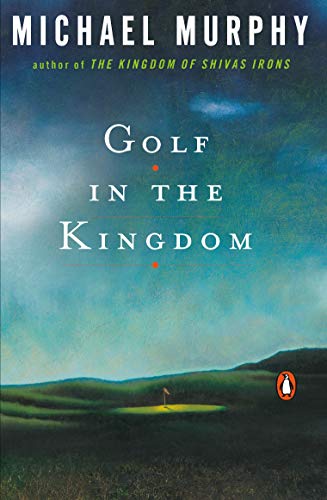 In 1972, I bought my first copy of Michael Murphy's now classic novel Golf in the Kingdom. It remains in print and I suspect the story would still resonate. A young philosophy student on his way to an ashram in India spends a pivotal day at the fictional Burningbush Links in Scotland, where he is captivated by a mysterious golf guru named Shivas Irons, who observes that golf "is always a trip back to the first tee, the more you play the more you realize you are staying where you are... you reenact that secret of the journey. You may even get to enjoy it."
In 1972, I bought my first copy of Michael Murphy's now classic novel Golf in the Kingdom. It remains in print and I suspect the story would still resonate. A young philosophy student on his way to an ashram in India spends a pivotal day at the fictional Burningbush Links in Scotland, where he is captivated by a mysterious golf guru named Shivas Irons, who observes that golf "is always a trip back to the first tee, the more you play the more you realize you are staying where you are... you reenact that secret of the journey. You may even get to enjoy it."
From 1973 to 1997, I lived in Rutland, Vt., which was also the U.S. headquarters of Tuttle Publishing. Founder Charles Tuttle, who died in 1993, had served as an American soldier in Tokyo after World War II. He fell in love with Japanese culture and made it his life's mission to introduce this world to American readers, one of whom turned out to be me. Sometime during the 1980s, I met Mr. Tuttle when we fortuitously played a few holes together on a local golf course. I had the chance to thank him personally for the amazing world he had given me.
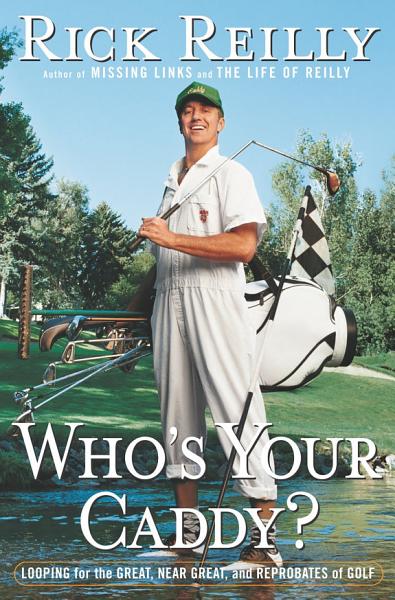 In 2003, I read Who's Your Caddy?: Looping for the Great, Near Great, and Reprobates of Golf, in which Rick Reilly recounts his caddie-for-a-day adventures with a variety of golfing celebrities, including a future president ("You do not interview Trump. You just try to be in the Doppler radar when his tornado blows by and sucks you in.").
In 2003, I read Who's Your Caddy?: Looping for the Great, Near Great, and Reprobates of Golf, in which Rick Reilly recounts his caddie-for-a-day adventures with a variety of golfing celebrities, including a future president ("You do not interview Trump. You just try to be in the Doppler radar when his tornado blows by and sucks you in.").
During the 2013 PGA Championship at Oak Hill Country Club in Rochester, N.Y., I spent three days walking the course in close proximity to some of the world's best golfers. 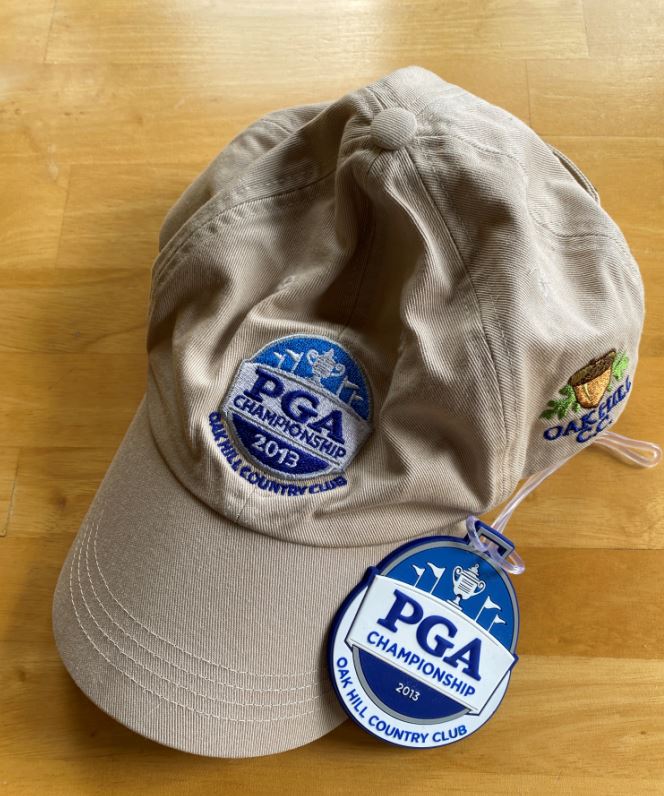 Ducking the weekend crowds, I escaped on Friday afternoon and drove south to the Abbey of the Genesee, where I strolled the quieter grounds of a Trappist monastery, found a spot under a tree, and just read. That was a good decision, a caddie's call. Read the situation, make adjustments as needed.
Ducking the weekend crowds, I escaped on Friday afternoon and drove south to the Abbey of the Genesee, where I strolled the quieter grounds of a Trappist monastery, found a spot under a tree, and just read. That was a good decision, a caddie's call. Read the situation, make adjustments as needed.
Renowned sports psychologist and bestselling author Bob Rotella has worked with many of the best players on the PGA tour as a kind of mind-game caddie. In the winter of 2004, the bookstore where I worked hosted an event for his title The Golfer's Mind. I first knew him, however, about 35 years before that night as one of my college lacrosse teammates.
While introducing Bob at the event, I said, among other things, that I'd learned a great deal about myself on the golf course--much more, sometimes, than I cared to know. And even though I seldom played golf as well as I wanted to, I hoped my work as a bookseller was up to the level I'd once hoped my golf game would be.
In his first book, Golf Is Not a Game of Perfect, Bob wrote: "The process, not the end result, enriches life." I think that's how I played the handselling game, one book and one reader at a time. John Updike also hit the mark in his story "Farrell's Caddie," when wizened Scottish looper Sandy growls: "Ye kin tell a' aboot a man, frae th' way he gowfs." And you can tell a lot about booksellers from the way they handsell.












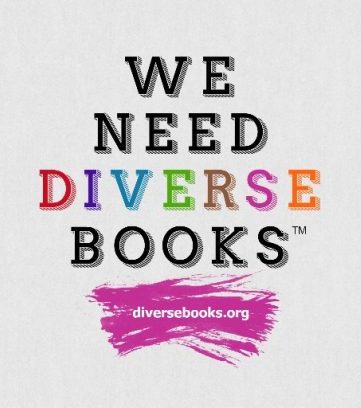 On May 18, a letter signed by more than 1,300 children's authors and illustrators was sent to the House Subcommittee on Civil Rights and Civil Liberties. In it, the authors condemned "the current wave of book suppression that specifically targets titles by creators who are LGBTQIA+ and Black, Indigenous, and people of color."
On May 18, a letter signed by more than 1,300 children's authors and illustrators was sent to the House Subcommittee on Civil Rights and Civil Liberties. In it, the authors condemned "the current wave of book suppression that specifically targets titles by creators who are LGBTQIA+ and Black, Indigenous, and people of color."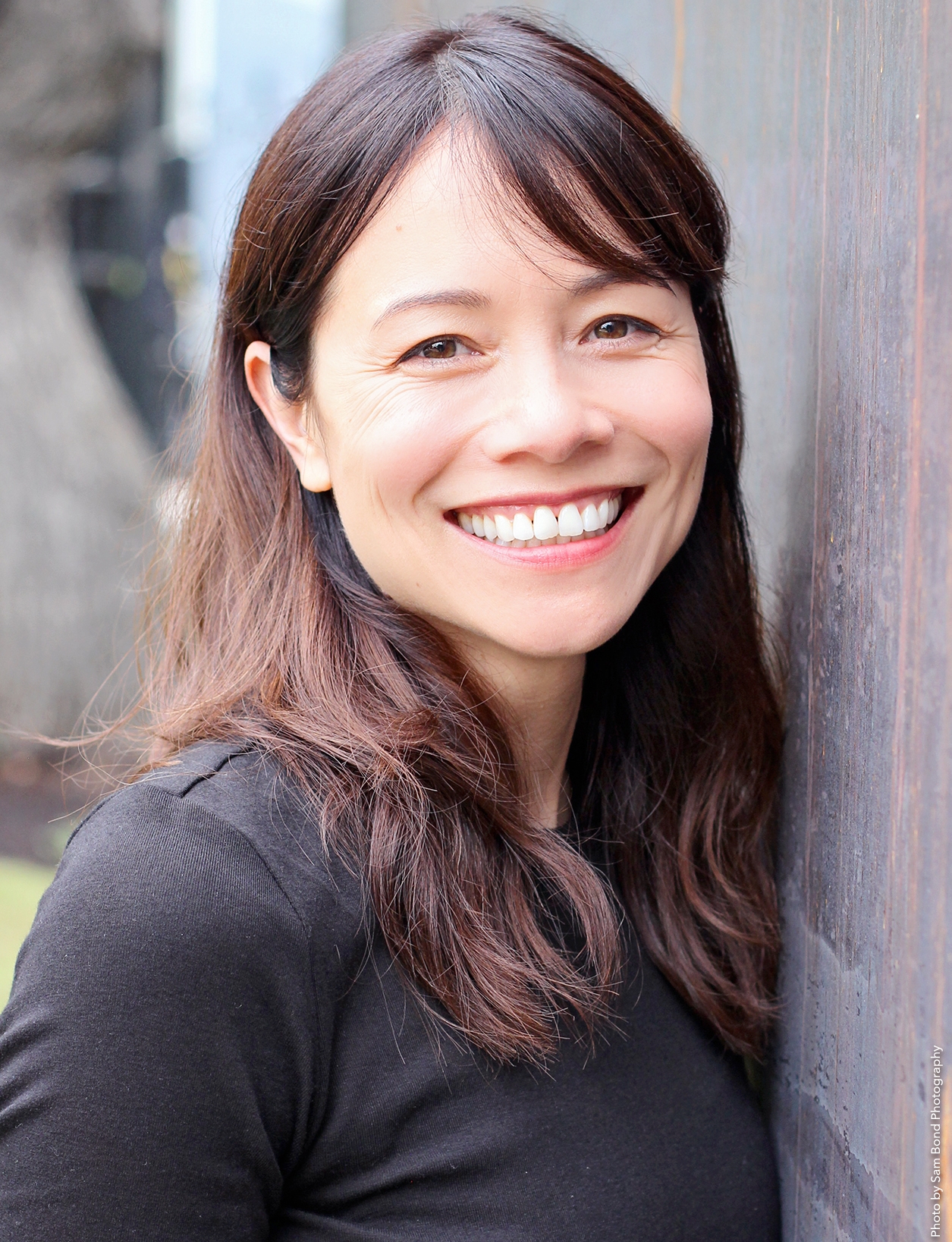

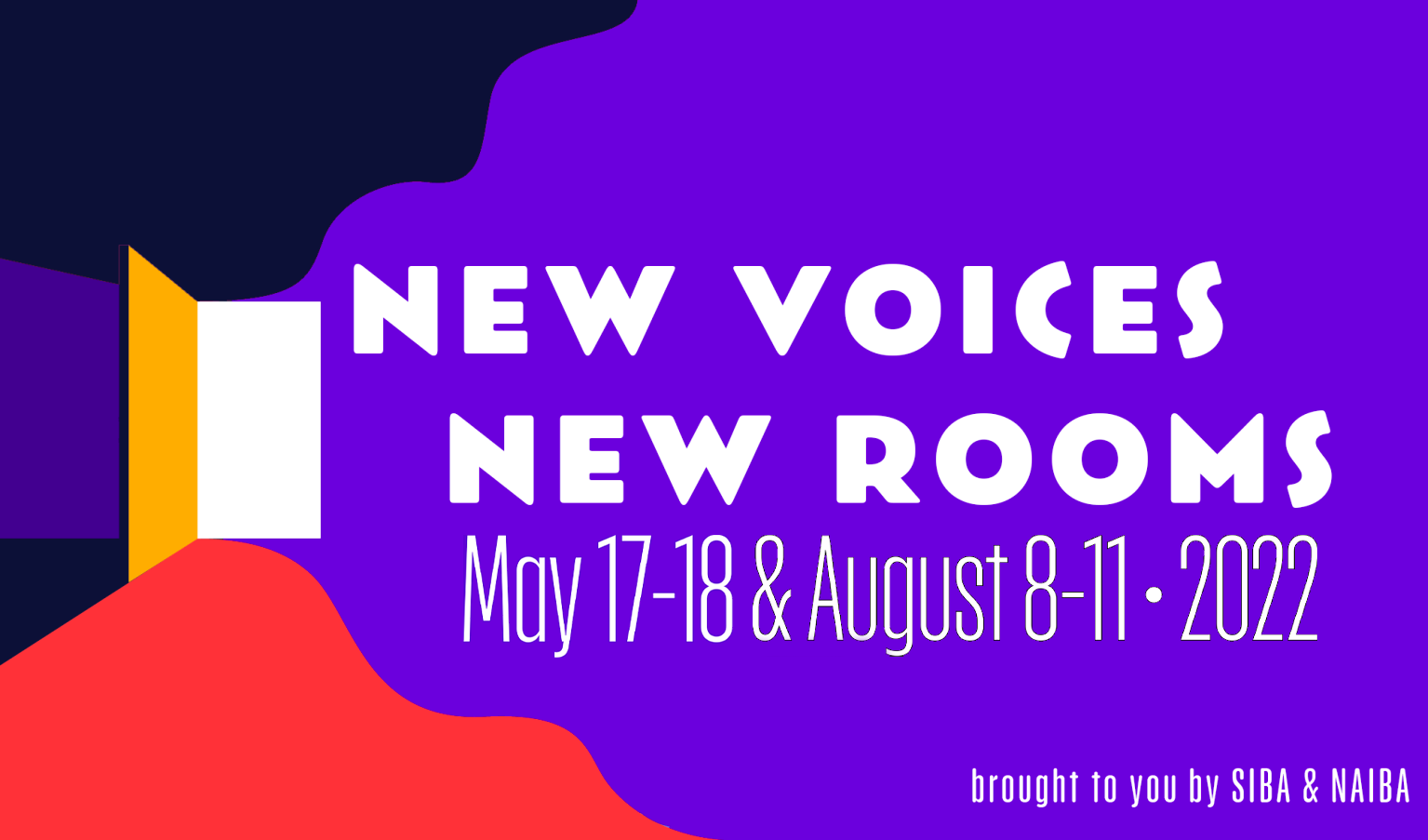
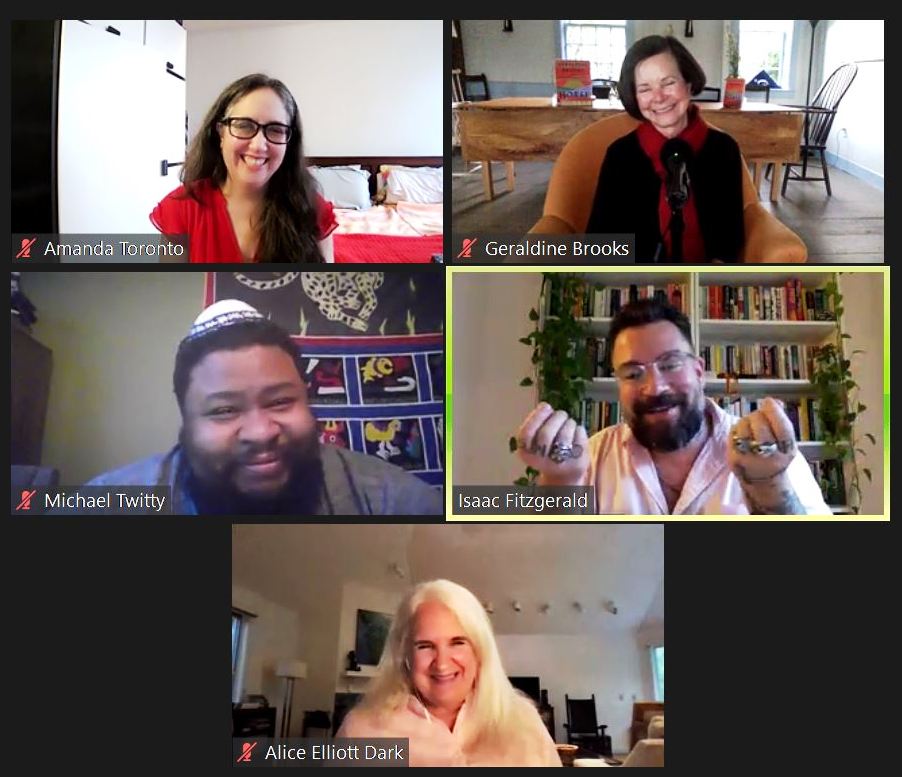 Alice Elliott Dark also went down a bit of a research rabbit hole with her novel Fellowship Point (Marysue Rucci/Scriber, July 5). A friend of hers was cataloguing thousands of acres of land that had been given to the University of California, mostly from women. Dark learned that women were allowed to own land in the late 1800s, but were not allowed to have a say in what happened to that land until 1900; only male relatives could make those decisions. Dark was intrigued by the idea that women "walked more lightly on the land," and focused on two characters, friends Agnes and Polly, both 80 years old, and what happens when they're in control of a sizable amount of land on the coast of Maine. Developers are eyeing Fellowship Point, and Polly and Agnes, both "vibrant" and involved, have differing ideas of what to do with it. The book explores "land ownership, land stewardship, who does it belong to and why," Dark said. Polly and Agnes are also Quakers, so themes of justice, nature and conservation also enter the novel.
Alice Elliott Dark also went down a bit of a research rabbit hole with her novel Fellowship Point (Marysue Rucci/Scriber, July 5). A friend of hers was cataloguing thousands of acres of land that had been given to the University of California, mostly from women. Dark learned that women were allowed to own land in the late 1800s, but were not allowed to have a say in what happened to that land until 1900; only male relatives could make those decisions. Dark was intrigued by the idea that women "walked more lightly on the land," and focused on two characters, friends Agnes and Polly, both 80 years old, and what happens when they're in control of a sizable amount of land on the coast of Maine. Developers are eyeing Fellowship Point, and Polly and Agnes, both "vibrant" and involved, have differing ideas of what to do with it. The book explores "land ownership, land stewardship, who does it belong to and why," Dark said. Polly and Agnes are also Quakers, so themes of justice, nature and conservation also enter the novel.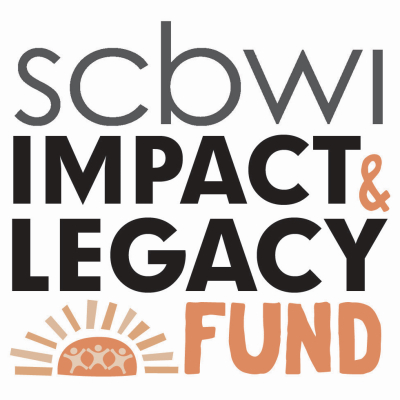 The Society of Children's Book Writers and Illustrators has launched the
The Society of Children's Book Writers and Illustrators has launched the 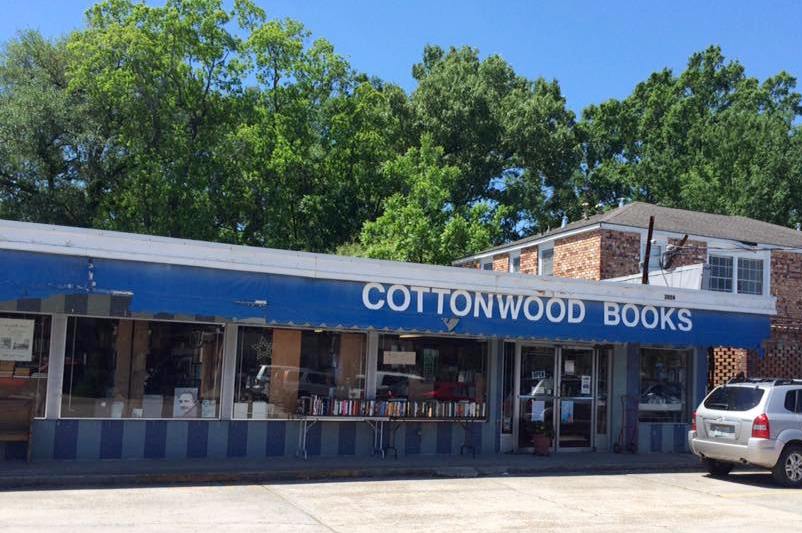
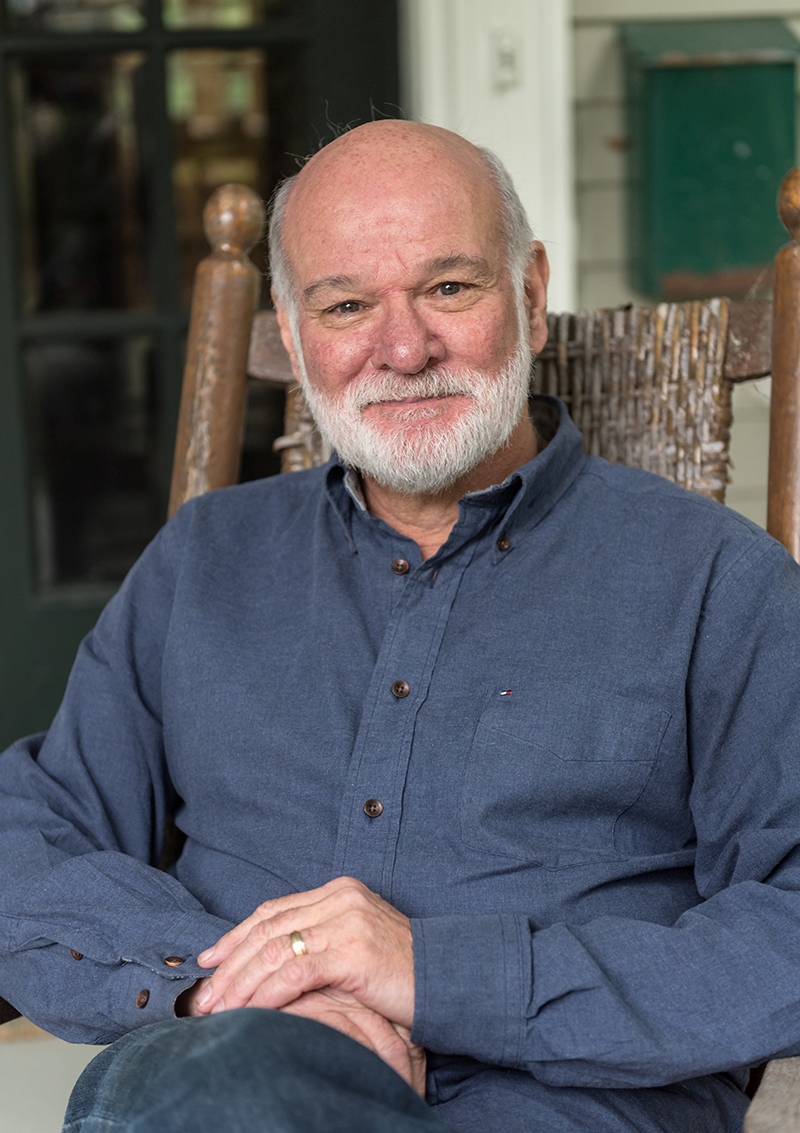
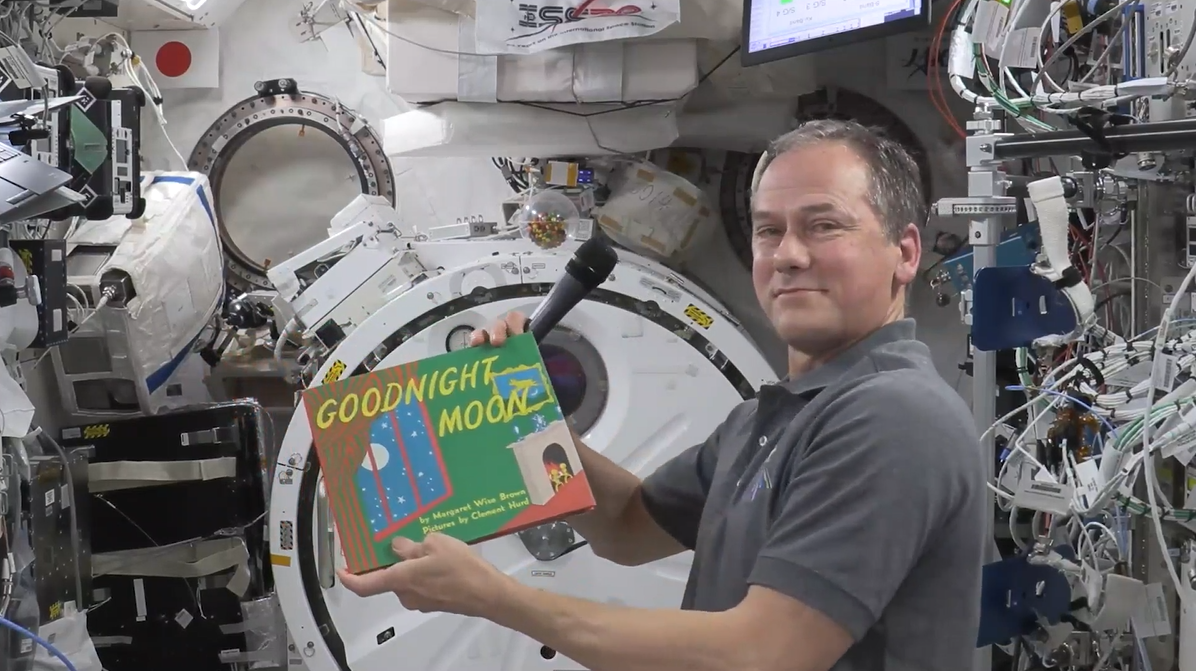 Earlier this week, astronaut Tom Marshburn on the International Space Station shared a zero-gravity reading of Goodnight Moon. The out-of-this-world event, which included an "Ask an Astronaut" q&a and an art project inspired by the book, was part of the 75th anniversary celebration of Margaret Wise Brown and Clement Hurd's classic, and was sponsored by Crayola, NASA and HarperCollins Children's Books. The event can be viewed on
Earlier this week, astronaut Tom Marshburn on the International Space Station shared a zero-gravity reading of Goodnight Moon. The out-of-this-world event, which included an "Ask an Astronaut" q&a and an art project inspired by the book, was part of the 75th anniversary celebration of Margaret Wise Brown and Clement Hurd's classic, and was sponsored by Crayola, NASA and HarperCollins Children's Books. The event can be viewed on  Posted on Facebook by
Posted on Facebook by 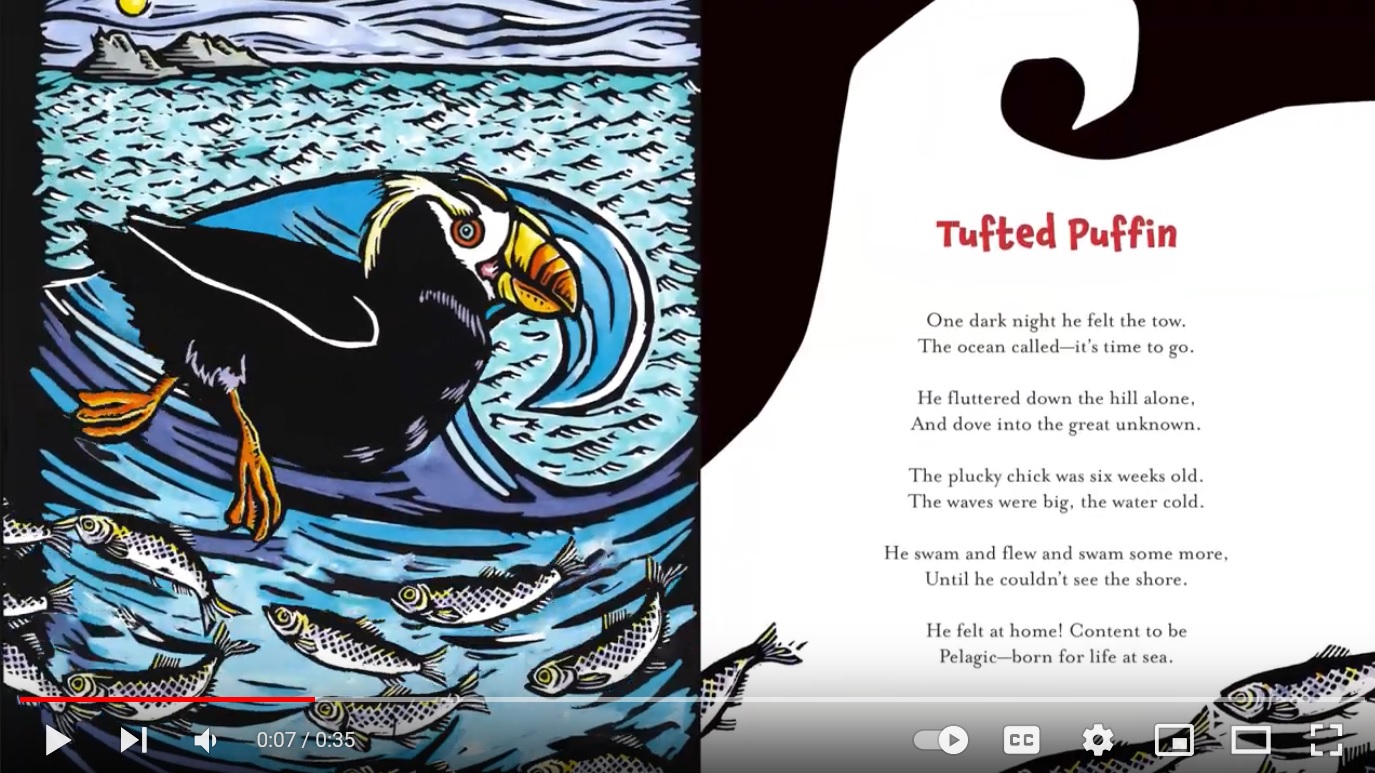 Alaska Is for the Birds! Fourteen Favorite Feathered Friends
Alaska Is for the Birds! Fourteen Favorite Feathered Friends.jpg)
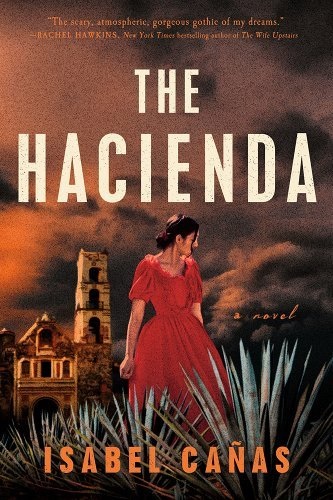 Book you're an evangelist for:
Book you're an evangelist for: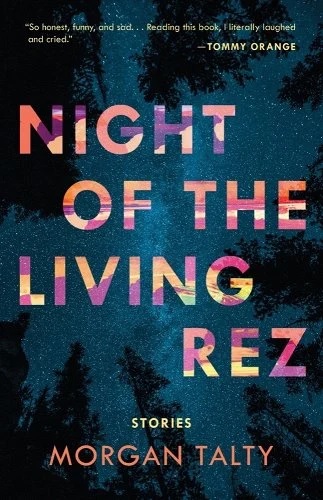 The dozen stories of Morgan Talty's vivid debut collection, Night of the Living Rez, certainly stand alone--eight of them were previously published in various prestigious journals including the Georgia Review and Narrative magazine, which also awarded him a 2021 Narrative Prize. To discover all 12 together, however, becomes a richly enhanced experience, their intertwining links creating a more sustained, rewarding read. Talty sets his fiction in the "rez," the Penobscot Indian Nation community of which he, too, is a citizen; here, it's called the "Panawahpskek Nation," whose spelling difference (and more) is elucidated in a note at the end of the book.
The dozen stories of Morgan Talty's vivid debut collection, Night of the Living Rez, certainly stand alone--eight of them were previously published in various prestigious journals including the Georgia Review and Narrative magazine, which also awarded him a 2021 Narrative Prize. To discover all 12 together, however, becomes a richly enhanced experience, their intertwining links creating a more sustained, rewarding read. Talty sets his fiction in the "rez," the Penobscot Indian Nation community of which he, too, is a citizen; here, it's called the "Panawahpskek Nation," whose spelling difference (and more) is elucidated in a note at the end of the book.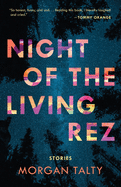
 As you may have guessed, I've been thinking about books and golf, prompted unexpectedly by a May 2 Facebook post from
As you may have guessed, I've been thinking about books and golf, prompted unexpectedly by a May 2 Facebook post from  I like it. As the tournament approached, Magic City Books created a
I like it. As the tournament approached, Magic City Books created a  In 1972, I bought my first copy of Michael Murphy's now classic novel Golf in the Kingdom. It remains in print and I suspect the story would still resonate. A young philosophy student on his way to an ashram in India spends a pivotal day at the fictional Burningbush Links in Scotland, where he is captivated by a mysterious golf guru named Shivas Irons, who observes that golf "is always a trip back to the first tee, the more you play the more you realize you are staying where you are... you reenact that secret of the journey. You may even get to enjoy it."
In 1972, I bought my first copy of Michael Murphy's now classic novel Golf in the Kingdom. It remains in print and I suspect the story would still resonate. A young philosophy student on his way to an ashram in India spends a pivotal day at the fictional Burningbush Links in Scotland, where he is captivated by a mysterious golf guru named Shivas Irons, who observes that golf "is always a trip back to the first tee, the more you play the more you realize you are staying where you are... you reenact that secret of the journey. You may even get to enjoy it."  In 2003, I read Who's Your Caddy?: Looping for the Great, Near Great, and Reprobates of Golf, in which Rick Reilly recounts his caddie-for-a-day adventures with a variety of golfing celebrities, including a future president ("You do not interview Trump. You just try to be in the Doppler radar when his tornado blows by and sucks you in.").
In 2003, I read Who's Your Caddy?: Looping for the Great, Near Great, and Reprobates of Golf, in which Rick Reilly recounts his caddie-for-a-day adventures with a variety of golfing celebrities, including a future president ("You do not interview Trump. You just try to be in the Doppler radar when his tornado blows by and sucks you in.").  Ducking the weekend crowds, I escaped on Friday afternoon and drove south to
Ducking the weekend crowds, I escaped on Friday afternoon and drove south to